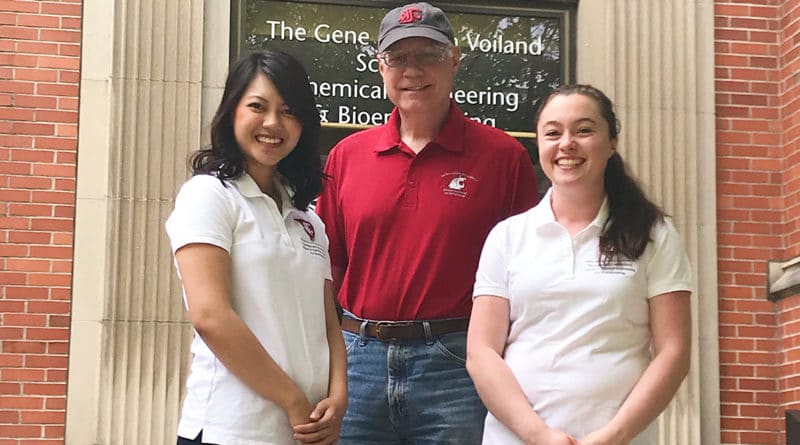Learning Kits to Retain Women in Engineering
Washington State University researchers are developing hands-on learning kits they hope will make a difference in retaining more women in engineering programs.
Led by Bernard Van Wie, a professor in the Gene and Linda Voiland School of Chemical Engineering and Bioengineering, graduate students Kitana Kaiphanliam and Olivia Reynolds, received a Samuel H. and Patricia W. Smith Teaching and Learning Grant to develop the kits, which will give students a taste of the real-world impact of engineering.
Women are significantly underrepresented in engineering, earning less than 20 percent of all engineering degrees, according to the National Girls Collaborative Project. Even when they begin science and engineering programs, women leave for other majors more often than men, according to the U.S. Department of Education.
In their research, Kaiphanliam and Reynolds learned that young women are typically more interested in professions which they perceive as directly involving people and their lives, such as a doctor or veterinarian. They didn’t often view engineering as a field where they could help others.The women decided to develop kits that would demonstrate biomedical engineering concepts that easily translate into real-world applications in the medical field.
“These kits will help undergraduate students, especially women, realize that becoming an engineer offers them a wide range of opportunities to contribute to society,” said Kaiphanliam.
One of the learning kits will help students learn fluid dynamics while they work on a simulation of fluid flow in blood vessels in the cases of an aneurysm or blood clot. A second project will introduce students to the concept of blood cell separations by using an entertaining and simple fidget-spinner-inspired centrifuge design.
“These concepts are not usually introduced until junior year, but exposing freshmen to them and engaging their sense of sight and touch can create a more intuitive understanding,” said Reynolds. “We believe that focusing on biomedical applications early in students’ undergraduate experience can help them understand how chemical engineering knowledge can be easily transferred to biological systems,” she said, adding that this is likely to result in higher retention rates for women.
The prototypes of the devices will be implemented in classrooms in spring of 2020. Led by Olusola Adesope, a Boeing Distinguished Professor of STEM education and associate professor of educational psychology, the team will also track retention rates in chemical engineering and conduct surveys on how the kits affect student attitudes towards engineering. They will present their results at a national engineering education conference next year.

